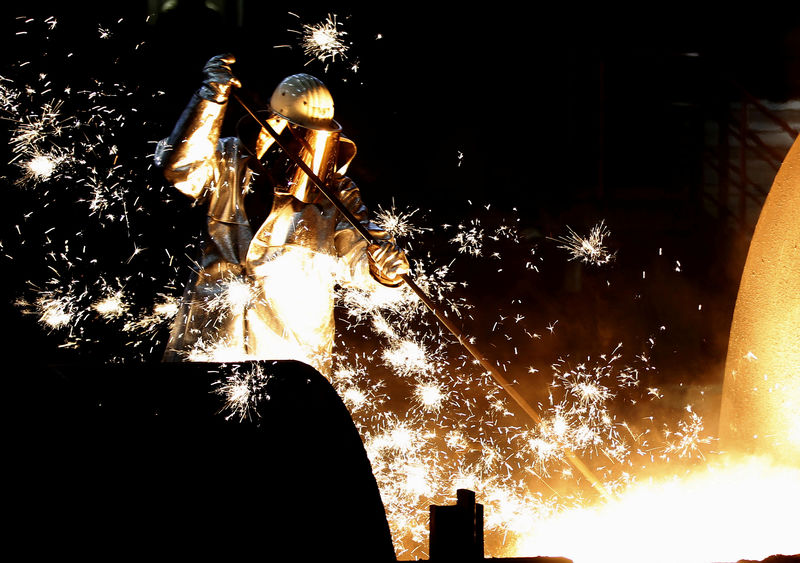By Madeline Chambers
BERLIN (Reuters) - German industrial orders rose more than expected in September, according to data released on Wednesday, offering a glimmer of hope for the country's struggling manufacturers.
The export-reliant manufacturers have been suffering from a slowing world economy and business uncertainty linked to a trade war between the United States and China plus Britain's planned, if delayed, exit from the European Union.
Contracts for German goods rose 1.3% from the previous month, helped by increases in both domestic and foreign demand, the Federal Statistics said. A Reuters poll forecast a rise of 0.1%.
"At last, a positive surprise from German industry," said Jens-Oliver Niklasch, senior economist at Landesbank Baden-Wuerttemberg. "It looks at the moment like a bottoming out. The downturn is not continuing, although new impulses for growth are thin on the ground."
The economy ministry said the numbers were a good starting point for the final quarter of the year and pointed out that business expectations had also brightened.
Germany's economy shrank 0.1% in the second quarter and recent data have suggested continued weakness in manufacturing in the third quarter, which could put Germany in recession, generally defined as two straight quarters of contraction.
Concern about the outlook for Germany, the engine of the euro zone economy, has in turn discouraged the rest of 19-country currency union.
The data showed a 1.6% rise in domestic orders and 1.1% increase in foreign contracts, although those from the euro zone were 1.8% lower.
Orders for capitals goods rose most, up 3.1%. Those for consumer goods increased 0.8%. Demand for intermediate goods, however, fell 1.5%.
The orders data offered a rare bright spot. Leading economic institutes have slashed growth forecasts for this year and next. The government has so far stuck to its balanced budget policy, resisting pressure to spend more to boost flagging demand.
A survey on Monday showed that Germany's manufacturers remained stuck in recession in October as new orders fell for the 13th straight month and factories cut jobs at the fastest pace in almost 10 years.

"The numbers today offer a small glimmer of hope that things will improve a bit in the coming months," said Thomas Gitzel, chief economist at VP Bank Group. "But German economic growth will for now remain a sluggish affair."